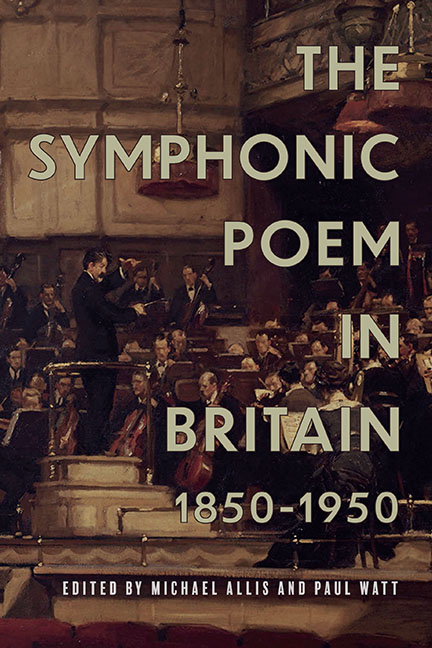2 - The Symphonic Poem and British Music Criticism
Published online by Cambridge University Press: 23 October 2020
Summary
HISTORIES of British music typically contain little or no coverage of the symphonic poem. By contrast, the periodical press – especially between 1880 and 1940 – is a rich store of information and critical insight about this ambiguous and often ambitious genre. For the critics who wrote about tone poems these musical works were regarded as repositories of sound that referenced art, poetry, history, aesthetics, psychology and national identity. Commentary by critics and historians on symphonic poems also gave rise to narratives of style, as well as an engagement with the aesthetics of absolute and programme music and ‘the music of the future’. The press is also a repository of opinion about the failings of symphonic poems – usually along the lines of incoherence, unsuitable subject matter, lack of tone colour or unpleasing or awkward melodic shape. Critics wrote often about related issues of production and performance; they also documented symphonic poems that were once successful but had long fallen out of the repertory, highlighted female composers’ contributions to the genre, and identified the successful hallmarks of tone poems by Scandinavian, European and North American composers whose works were performed throughout Britain.
❧ Franz Liszt and the Varieties of Symphonic Poems
Mark Evan Bonds has observed that after the publication of Franz Liszt's genre-defining essay on programme music in the Neue Zeitschrift für Musik in 1855, ‘critics of the day were … perfectly willing to accept the idea that a work of music could project objects, events, or ideas lying outside the realm of sound, or that such a composer might have such a “program” in mind when writing a work of purely instrumental music’. The British critics discussed in this chapter were no exception. Generally, they were open to, and enthusiastic about, music with extra-musical associations, but not when a plot was difficult to discern and digest, the music was lame, or tone colour and orchestration were derivative or clichéd. The music's paratexts, as described by James Hepokoski, helped to frame reception and played a large part in conditioning how audiences – and critics – made sense of what they heard.
- Type
- Chapter
- Information
- The Symphonic Poem in Britain, 1850–1950 , pp. 55 - 79Publisher: Boydell & BrewerPrint publication year: 2020



